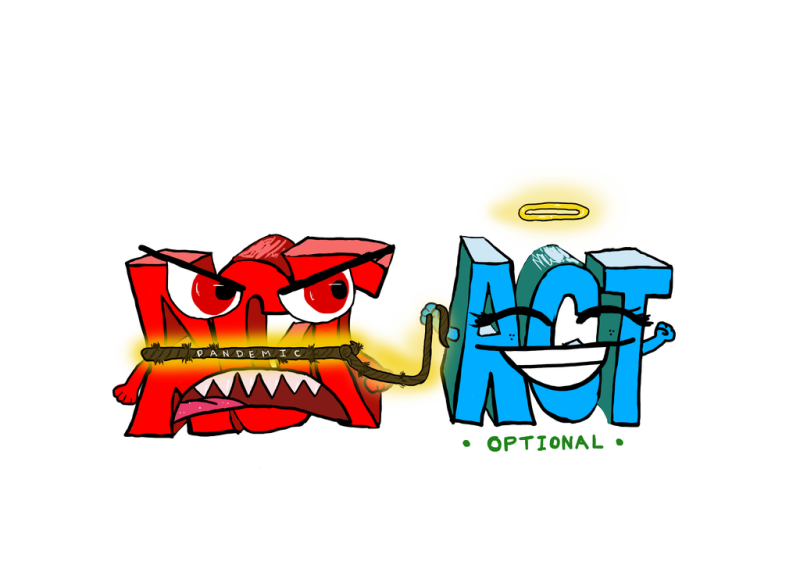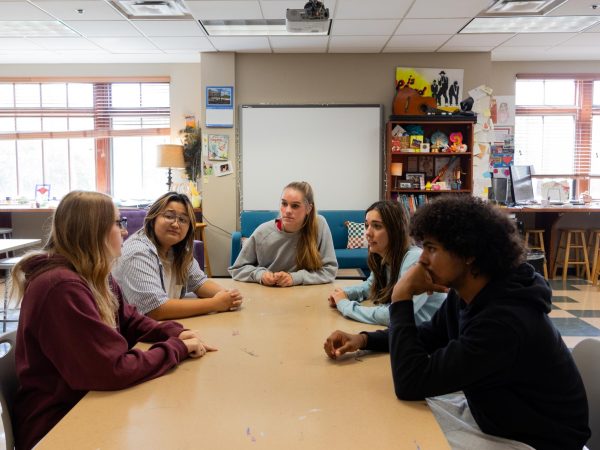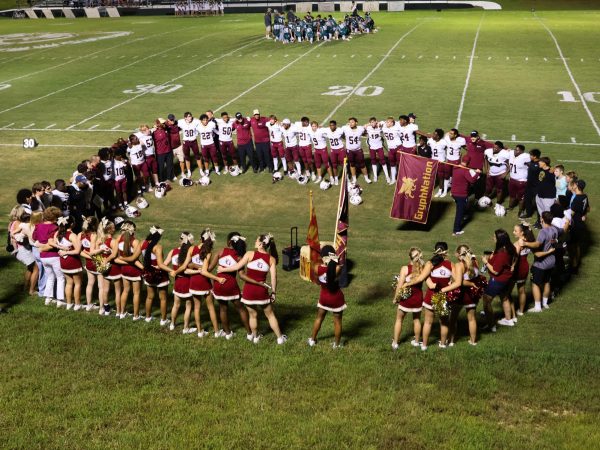Testing the Test
Covid forces schools to go ACT-optional

Like many rising juniors, Scottie Brown planned on taking her ACTs this past June only to find the testing canceled.
“All the summer ones got canceled, like, every single month,” Brown said in October. At the time, her top choices Samford, Covenant College, and Baylor University were not test-optional, so she didn’t know if she could apply without test scores.
She was among the 770,000 high school students who were scheduled for in-school tests that didn’t happen, according to Inside Higher Ed, a higher education news source.
As the nation grappled with the pandemic, many high school juniors and seniors like Brown were left wondering when they would have the opportunity to access standardized testing again.
“Finally, I was just like, I’ll do winter,” Brown said. She was able to sign up for and take the exam in December, but others may not have been so lucky. Seats for the December ACT in Memphis filled rapidly, with only a few seats still open to students in November and 16 testing centers shut down for the December 12 administration.
Since then the situation has improved in Tennessee. At the beginning of February, Memphis only had two testing centers that had rescheduled their administration, compared to the hundreds that have been canceled around the United States. In Tennessee, there were only 14 cancellations dispersed between nine cities for the February ACT administration.
While students locally are likely to struggle less in scheduling standardized tests in the months to come, the cancellation of so many tests has had a significant impact on students and colleges across the nation.
Because of the limited access to standardized testing, some colleges have decided to go test-optional as a way to accommodate students.
In 2017, when the class of 2021 were high school freshmen, FairTest.org reported that only nine schools announced that they would be going test-optional (joining over 1,000 schools that were already test-optional at that point). This year, FairTest.org reports 625 new schools have gone test-optional.
Before this year, the University of Chicago was the most selective school that had adopted a test-optional policy, but since then, the entire Ivy League, including Yale, Harvard and Princeton, have joined the ranks.
So does that mean students are breathing a sigh of relief? Maybe some are, but Alyssa Aghabeg, a rising senior, recently took the ACT anyway.
“I chose to take the ACT because I wanted to be prepared in case some of the schools I plan to apply to choose to require the ACT,” she said. “I also wanted to see if I could get a good enough score that I would want to send to schools even if they were test optional in order to improve my chances of getting in.”
But what does this look like from the other side? How are colleges and universities adapting?
Ms. Morgan Farrar, an admissions officer at Washington University in St. Louis, said colleges are having to shift their approach in response to the pandemic.
“There has been an even greater focus on the context of a student’s experiences, as the last two years of high school were majorly disrupted,” Ms. Farrar said, “so we try our best to consider that when reviewing applications.”
Washington University has also switched to a test-optional policy to further accommodate students.
Director of College Guidance Jessica Hardy said that colleges are having to rethink how they evaluate students.
“It’s making colleges really think about why we have this standard for admission,” Ms. Hardy said. “[It’s also making them] think about what else is there about a student that would help us know that they’d be good candidates for our school and be contributors to our campus community.”
The issues that the COVID-19 pandemic presents may not be going away for a while, but students and colleges alike are learning to adapt to the obstacles that keep coming.
Ms. Hardy said she wants students to know that although these restrictions can make it challenging to move through your college search process, many new opportunities are emerging.
“Though this pandemic has made a lot of things limited, it’s also opened a lot of doors and different ways to consider how to connect with people,” Ms. Hardy said. “It’s not just a big inconvenience for people, so that has been really nice.”











